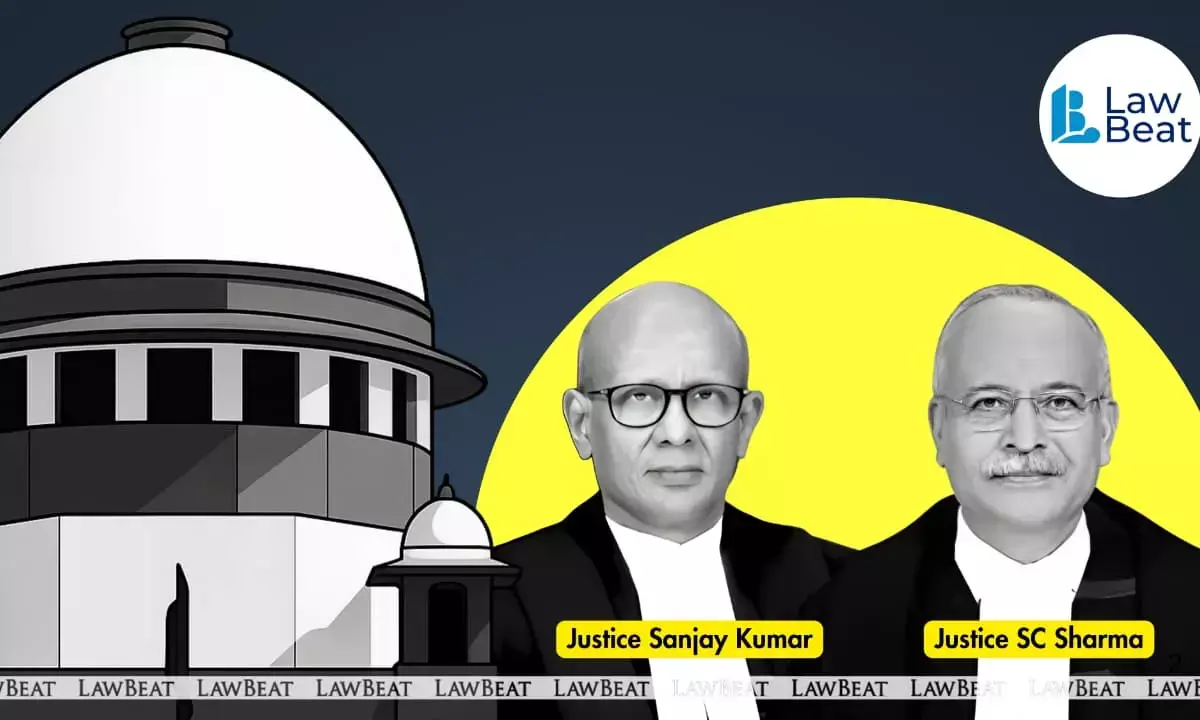'Arbitrator Cannot Rewrite Contract': SC Sets Aside Arbitral Award in IRCTC Catering Contract Dispute

The Supreme Court Bench of Justices Sanjay Kumar and Satish Chandra Sharma sets aside arbitral decision on IRCTC catering contract dispute
The Supreme Court recently reiterated that an arbitrator cannot rewrite a contract between parties, observing that doing so would violate the basic principles of justice. Such interference with agreed terms, the court said, would shock its conscience and justify judicial intervention as an exceptional circumstance.
A bench of Justices Sanjay Kumar and Satish Chandra Sharma allowed appeals filed by the Indian Railways Catering and Tourism Corporation (IRCTC) and set aside a 2022 arbitral award, as well as Delhi High Court judgments passed in 2024 and 2025 upholding it.
The bench found that the arbitrator had ignored the Railway Board’s binding policy circulars and had wrongly interpreted the contractual terms, which were fully consistent with those policies.
“Once the contracts between the parties were strictly in terms of and in keeping with the extant policy, the terms of such contracts could not have been interpreted contrary to and in violation of the policy. The arbitrator was, therefore, not justified in interpreting the contractual terms contrary to the language used therein, which merely mirrored the Railway Board’s policy decisions,” the bench said.
Court held that the arbitral award was patently illegal and in conflict with the public policy of India, and therefore liable to be set aside under Sections 34(2A) and 34(2)(b)(ii) of the Arbitration and Conciliation Act, 1996.
The case concerned a dispute over catering services provided to passengers on Rajdhani, Shatabdi, and Duronto Express trains. The caterer, M/s Brandavan Food Products, claimed it was coerced into raising bills in line with Railway Board circulars and sought reimbursement for meals and welcome drinks. The arbitrator accepted the claim and directed IRCTC to reimburse Rs. 20.97 crore for the second regular meal, served at the price of a combo meal, and Rs. 5.04 crore for welcome drinks supplied after January 2015.
Before the Supreme Court, IRCTC argued that the arbitrator had exceeded his jurisdiction by effectively rewriting the contract. It contended that when parties have entered into a commercial contract with clarity and consent, the notion of fairness cannot be imported later to alter its terms.
The bench explained that Section 34 of the Arbitration and Conciliation Act provides only limited grounds for setting aside an award. Under Section 34(2A), a domestic award may be set aside only if it is vitiated by patent illegality on the face of it. Similarly, Section 34(2)(b)(ii) allows an award to be struck down if it is contrary to public policy.
Court held that the arbitrator had assumed he was merely interpreting the contract, but in fact, he altered its meaning contrary to the Railway Board’s policy decisions. “Merely because there was a subsequent change in policy with prospective effect, bringing parity in tariffs for the first and second meals, it did not nullify the earlier policies contained in Commercial Circulars No. 67 of 2013 and 32 of 2014,” the bench observed.
It concluded that the arbitrator had practically rewritten the contract in a way that contradicted the Railway Board’s binding policy decisions. “This error on the part of the arbitrator made the award not only contrary to public policy but also patently illegal,” the bench said.
Court also noted that Section 28(3) of the Act requires arbitrators to decide disputes in accordance with the contract terms and applicable trade usages. In this case, the Railway Board’s circulars represented such usages and were binding on the arbitrator.
Accordingly, the Supreme Court held that the caterers were not entitled to claim parity of tariff for the second regular meal or reimbursement for the welcome drinks.
Case Title: Indian Railways Catering and Tourism Corporation Ltd vs M/s Brandavan Food Products
Judgment Date: November 7, 2025
Bench: Justices Sanjay Kumar and Satish Chandra Sharma
